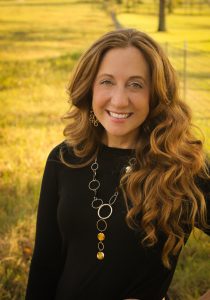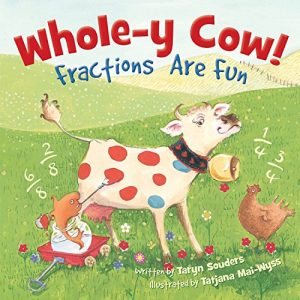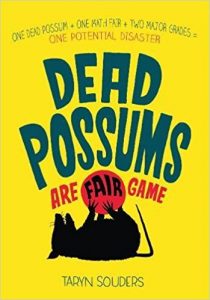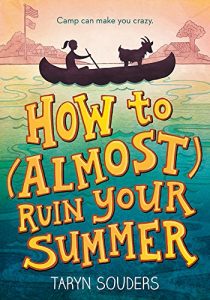Can you share a little about your recent book?
It’s a mystery titled Remains To Be Seen (to be published by Sourcebooks/Jabberwocky)
Days before school is set to begin for thirteen-year old Coop Goodman in the small town of Windy Bottom, a skeleton is uncovered at the abandoned playground. All signs point to murder and Coop’s beloved Gramps is the number one suspect!
Why do you write? Do you have a theme, message, or goal for your books?
I write for the general market so my goals are to write fun clean books that are exciting (and hopefully humorous) for kids, teachers, and families to read.
How long have you been writing?
Since 2006
And how long did it take you to get your first major book contract? Or are you published non-traditionally? How did that come about?
I am traditionally published. I have three different publishers: Sleeping Bear Press, Sky Pony, and Sourcebooks/Jabberwocky. My first book, Whole-y Cow! Fractions Are Fun was published by Sleeping Bear but the paperback rights were sold to Scholastic—so to me that was “major”. I started sending Whole-y Cow out in 2006 then stopped after a few months because we began a remodel on our home and I was pregnant. Then, in 2008, I received an email from SBP asking if the project was still available! I’d forgotten all about it! I signed with them and then the book released in 2010. People don’t always realize how long publishing can take, but that was an eye-opener for me. Then I got an awesome agent, Sally Apokedak of Apokedak Literary Agency. My first middle grade novel was Dead Possums Are Fair Game (with Sky Pony), followed by a two-book contract with Sourcebook/Jabberwocky. They published How to (Almost) Ruin Your Summer and will also be publishing Remains to be Seen.
How long does it take you to write a book?
I’m a slow writer—it takes me a couple years to produce a book that I’m happy enough with to send to my agent. Sally then usually edits and sends me suggestions that take a couple more months.
What’s your writing work schedule like?
Because I have school-age children still, I usually don’t get a lot of writing done during the summer. If I’m in the middle of story, ideally I’d like to knock out around 600 words a day. I take the weekends off to spend with family.
Do you have an interesting writing quirk? If so, what is it?
Well, I MUST have coffee—but I think a lot of writers have that requirement! I always listen to music. And if I run into a snag (writer’s block or a plot hole) I usually walk around the house talking to myself to try and work out the problem.
What has been your greatest joy(s) in your writing career?
When How to (Almost) Ruin Your Summer made Florida’s Sunshine State Young Reader Award list I was ECSTATIC! I got absolutely no work done that day and stayed on cloud nine for weeks. I was just as excited when Dead Possums Are Fair Game made the Georgia Children’s Book Award list the following year.
What has been your darkest moment(s)?
Rejections are never fun so when I get a few of those in a row, I tend to feel sorry for myself. But my husband is a great support and so are my critique groups. I’m part of Word Weavers International and SCBWI.
Which of your books is your favorite?
I think I’d have to say Remains to be Seen. I absolutely devoured mysteries as a kid and have always wanted to try my hand at one. I love my characters and their struggles, but I also love my southern heritage so combining a mystery with the south was a lot of fun!
Who is your favorite author to read?
It’s a toss up between Gary Schmidt, Sheila Turnage, and Lisa Lewis Tyre
What advice can you give aspiring writers that you wished you had gotten, or that you wished you would have listened too?
I have two pieces of advice. First, read hundreds of books in the genre you want to write. Learn what is appropriate for that age group. Study the dialogue, the characters, and how the plots are developed. The more you read in that genre, the better!
My second piece is to join a critique group. Critique groups are awesome for seeing problems or plot holes (and such) that we can no longer see since we’re so familiar with our work. Learn to listen to constructive criticism without stopping to justify your work.
How many times in your career have you experienced rejection? How did they shape you?
Countless—I’ve lost track! But with the rejections, editors have often provided a reason why and that helps me to make changes and hopefully strengthen my writing. I realize not all editors do that—and if an agent doesn’t represent you the chances are you may not find out why your manuscript was rejected. But don’t give up!
Do you have a favorite character or scene in one of your books?
I truly love the first couple chapters of Remains to be Seen. The reader meets a good chunk of the cast and there’s a nice dose of humor.
Where do you get your ideas?
I get my ideas from my life experiences and those of my kids. I mix a bit of my history with some imagination and then wait to see what comes out!
What are common mistakes you see aspiring writer’s make?
Dialogue is often one of the areas that can show if a writer is a novice. It can read unrealistic, stilted, or very adult. New writers also seem to be cautious of using the word said. They want to exclaim, shout, yell, cry, etc. Said is an invisible word, and is great to use because our brains tend to skim right over it. Don’t be afraid to use it!
And of course there’s the classic, Show, don’t tell mistake. Don’t tell your reader someone is angry. There’s a better way to show anger in conversation than simply adding an exclamation point and the dialogue tag of yelled. Have someone slam a door, throw a shoe, or tear up a photo and then speak. It’s far more exciting to read and shows the character’s emotion better.
Where/How do you recommend writers try to break into the market?
Conferences are a GREAT place to meet agents, editors/publishers, and other writers. If an agent or publisher can put a name with a face, they are more likely to remember you when you submit your manuscript. Conferences can be expensive so joining organizations like Word Weavers International or SCBWI (The Society of Children’s Book Writers and Illustrators) is helpful because they usually offer scholarships to conferences!

Taryn’s first book, Whole-y Cow! Fractions Are Fun was published by Sleeping Bear Press (2010), and became a non-fiction best seller for Scholastic’s Book Clubs.

Her middle grade novel Dead Possums Are Fair Game was released by Sky Pony and was a 2016 Crystal Kite finalist. It was part of the 2016 Battle of the Books in Birdville ISD in Texas, the 2017 Battle of the Books in Chicago, and a 2018-2019 Georgia Children’s Book Award nominee.

How to (Almost) Ruin Your Summer was a 2017 Crystal Kite Finalist and was also named to the Sunshine State Young Reader Award 2017-2018 book list. Her fourth middle grade novel, a mystery, Remains to be Seen, releases Spring 2020.

Taryn graduated from the University of North Texas with a degree in Interdisciplinary Studies and a specialization in Mathematics. She taught middle school where she learned the art of sarcasm. Now she stays at home and writes.
Taryn is a member of both SCBWI and Word Weavers, International. She currently lives in Sorrento, Florida with her husband, David, their three children, and two cats—an overly fuzzy Ragdoll named Mordecai, and a polydactyl Hemingway named Sebastian—who sleep on the sofa all day (the cats, not her husband or children). Her website is www.TarynSouders.com
Twitter: https://twitter.com/TarynSouders
Facebook: http://www.facebook.com/Taryn-Souders-Author
Website: https://twitter.com/TarynSouders
Books can be purchased at Barnes and Noble, Books-A-Million, Amazon, and through the publishers (listed below).





No Comments